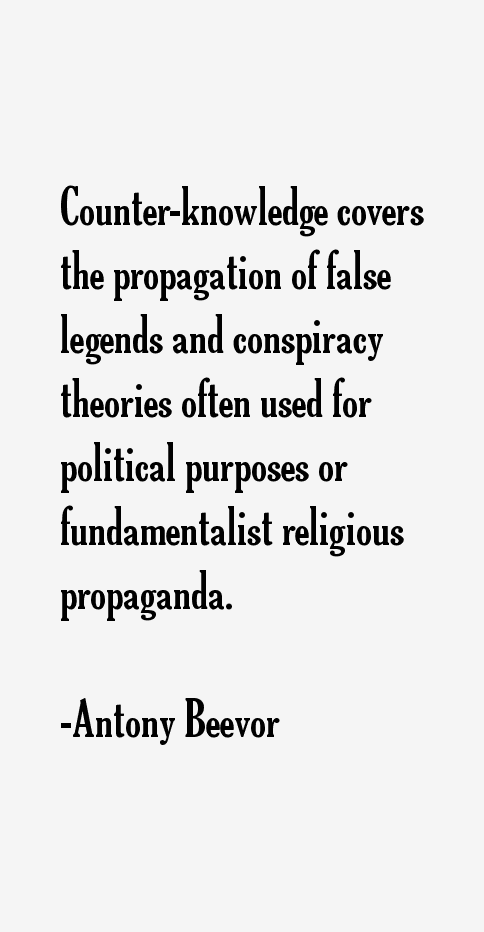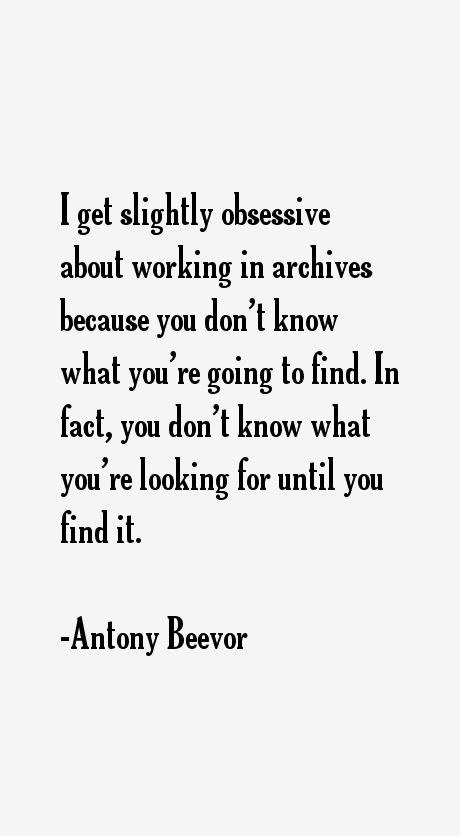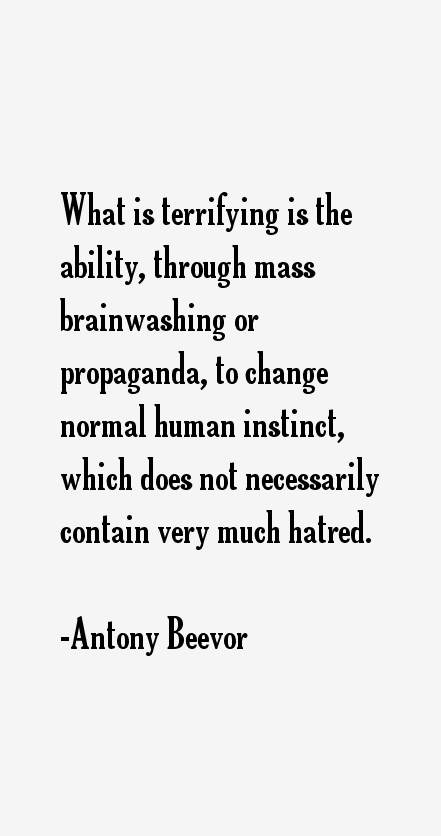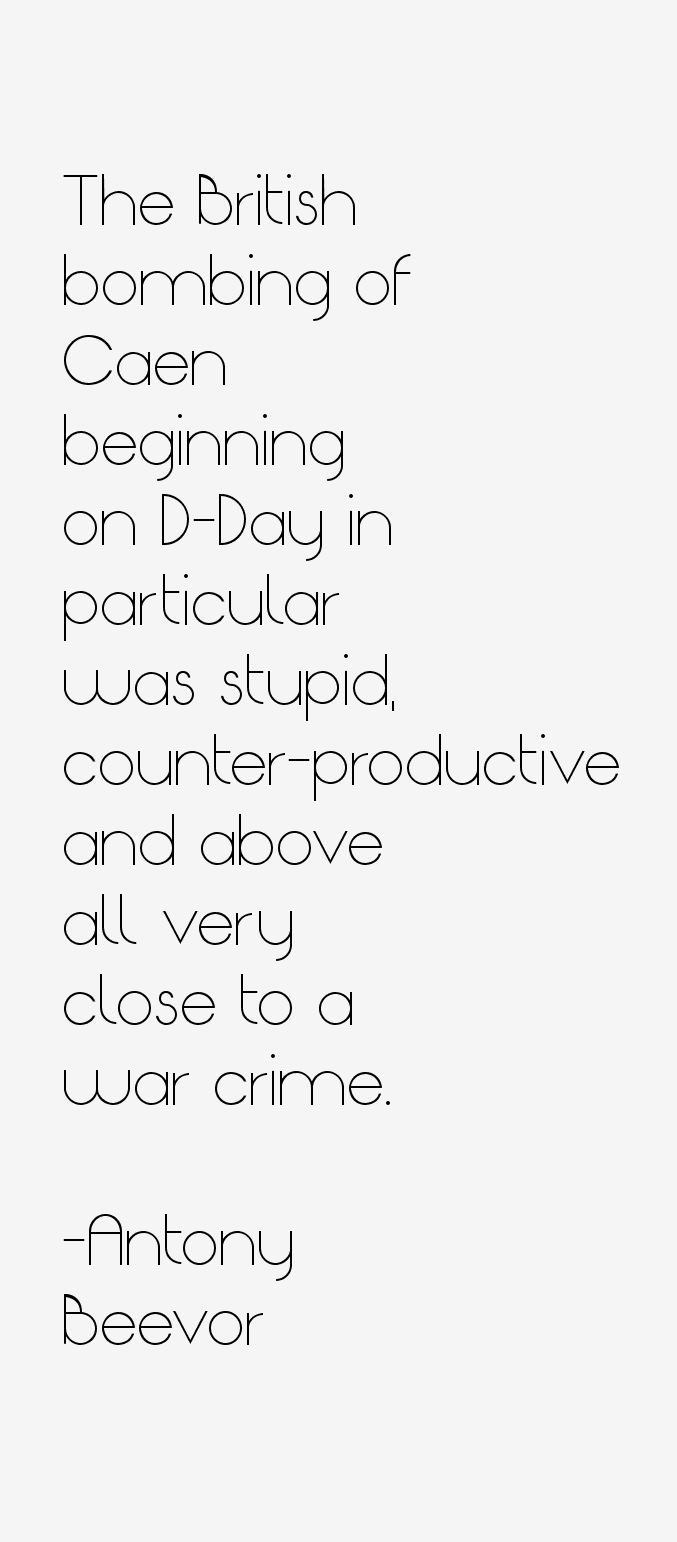Antony Beevor Quotes & Sayings (Page 3)
Antony Beevor quotes and sayings page 3 (historian). Here's quote # 21 through 30 out of the 61 we have.
“The vital thing for me is to integrate the history from above with the history from below because only in that way can you show the true consequences of the decisions of Hitler or Stalin or whomever on the ordinary civilians caught up in the battle.”
“When I was younger I used to get my best writing done at night, but now it has to be during the day. I usually finish work at half past seven, then go back to the house to open a bottle of wine, have dinner, and then read or watch television.”

“Counter-knowledge covers the propagation of false legends and conspiracy theories often used for political purposes or fundamentalist religious propaganda.”

“I believe passionately in preemptive pessimism, especially before a book comes out. I expect the worst both from reviewers and sales, and then, with any luck, I may be proved wrong.”

“I get slightly obsessive about working in archives because you don't know what you're going to find. In fact, you don't know what you're looking for until you find it.”

“I'm often reassured in a bizarre - perhaps perverse - way when I find in the archive stuff that contradicts what my assumptions have been. That's interesting and exciting.”
“School-leavers unfortunately will come away thinking the First World War consisted simply of 'going over the top' on the Western Front to slaughter in no-man's-land, when the conflict extended so much further, to the collapse of four empires and numerous civil wars.”

“What is terrifying is the ability, through mass brainwashing or propaganda, to change normal human instinct, which does not necessarily contain very much hatred.”
“When we dwell on the enormity of the Second World War and its victims, we try to absorb all those statistics of national and ethnic tragedy. But, as a result, there is a tendency to overlook the way the war changed even the survivors' lives in ways impossible to predict.”

“The British bombing of Caen beginning on D-Day in particular was stupid, counter-productive and above all very close to a war crime.”
Antony Beevor Quotes Rating
No Ratings Yet
Leave A Comment
























